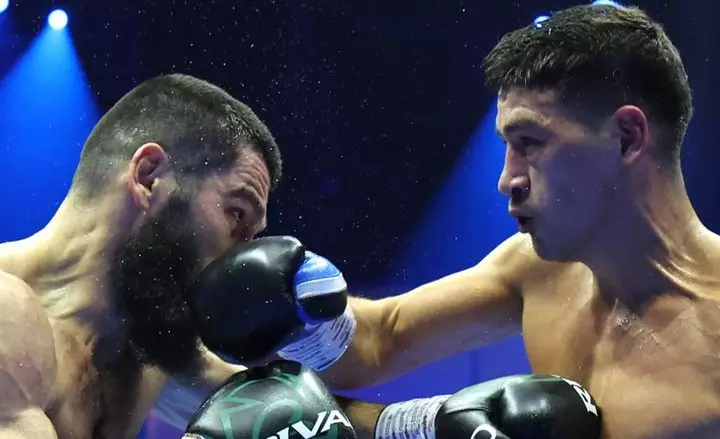In the realm of boxing, few events elicit as much debate and discussion as championship fights. Recently, the light heavyweight battle between Artur Beterbiev and Dmitry Bivol captured the attention of not just fans, but also analysts and former champions. The clash concluded with Beterbiev being crowned the undisputed light heavyweight champion after obtaining a majority decision victory, despite many observers feeling the decision was controversial. Such claims raise vital questions about judging criteria and the nature of victory in boxing.
The bout showcased two distinct yet captivating fighting styles. Bivol entered the ring employing a slick defensive strategy, relying heavily on his jab and agile footwork. His approach was reminiscent of classic boxing—defense dictating the pace of the fight. Beterbiev, on the other hand, embraced a high-pressure methodology. His strategy revolved around stalking Bivol, aiming to land powerful punches and asserting control of the ring. The dichotomy was evident from the outset, with Bivol’s early jab establishing his momentum while Beterbiev initially demonstrated patience, waiting for opportunities to capitalize.
As the rounds progressed, each fighter showcased their strengths. Bivol’s footwork was impressive, allowing him to evade many of Beterbiev’s assault attempts while delivering counters that kept his opponent on the defensive. This ability to control range made a significant difference in the early rounds, where Bivol appeared to be in command. Conversely, as the fight moved into the middle rounds, Beterbiev began to find his rhythm, landing significant power shots that shifted the tide slightly in his favor.
Throughout the fight, both boxers had their moments. In the early rounds, Bivol utilized his jab effectively and appeared to dictate the pace. However, two crucial elements began to shift in the latter half of the bout. First, Bivol’s output started to decline, and while he still landed notable shots, they lacked the same intensity that characterized his earlier performance. Beterbiev’s resilience became apparent; he adapted his strategy, pushing forward and landing heavier shots with increasing frequency.
By the sixth round, both competitors were firmly established in their rhythms—Beterbiev seemed charged and aggressive, while Bivol exhibited fatigue yet still managed to answer back. When observers analyzed rounds seven through ten, it became apparent that Beterbiev was capitalizing on Bivol’s slowing pace. While Bivol still maintained moments of brilliance, including expertly-timed combinations and effective movement, they were overshadowed by Beterbiev’s heavier blows.
The eleventh round emerged as a critical juncture, with Beterbiev’s pressure reaching its apex, leaving Bivol on the backfoot. The stakes were high, and at this point, it became a test of Bivol’s stamina and will. Despite markedly sustaining damage, Bivol demonstrated commendable endurance, managing to navigate through the barrage of punches. This resilience, marked by survival in such a tumultuous moment, was emblematic of his skill and conditioning.
The judges ultimately scored the fight in favor of Beterbiev, which ignited fierce debates among fans and analysts alike. With the scores reading 114-114, 115-113, and 116-112, there were divergent perspectives on the effectiveness of Bivol’s defensive maneuvers versus Beterbiev’s power punching. The crux of the discourse revolved around the subjective nature of scoring in boxing. While traditional views often favor aggression, many in the sport advocate for the significance of defense and strategic prowess.
Critics, including former champions, were quick to argue that “defense loses you fights,” a sentiment echoed in the online boxing community. As discussions unfolded, it became increasingly clear that the assessment of victory in boxing is not simply about landed punches but can involve a multitude of factors, including tactics, perseverance, and the ability to control the rhythm of the fight.
While Artur Beterbiev now holds the undisputed light heavyweight title, the discussions surrounding the bout with Dmitry Bivol are unlikely to subside anytime soon. The clash not only showcased high-level boxing but also exposed the nuanced complexities in judging that can leave fans divided. As boxing continues to evolve, so too must the conversation around how fights are scored and what elements are deemed most vital in determining a champion. Policies may need revisitation, especially as the sport looks to maintain its integrity amidst controversial decisions that can overshadow the legacy of champions.

